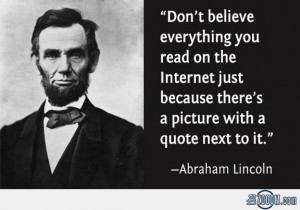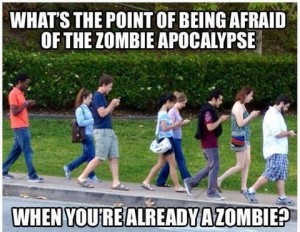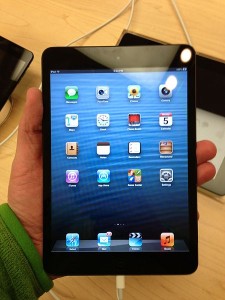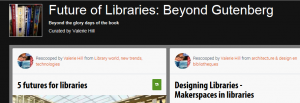The concept of algorithms providing us all with instant information access is fairly common since we all rely daily on Google. For the past few years, I have come across predictions about Big Data changing our lives from experts in the field of information technology, such as The Horizon Report.
I just finished reading Big Data by Viktor Mayer-Schonberger and Kenneth Cukier which provided an overview of the pros and cons of our “continuing infatuation with data” (Wall Street Journal). My biggest take-away is a phrase which was repeated throughout the book– we are no longer seeking causation as much as correlation. In other words, it doesn’t really matter why things are a certain way — just what they are! As an information professional I am struggling with that statement and several other ideas in Big Data.
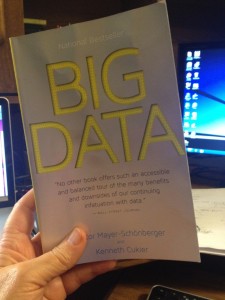
Benefits
Anyone who has ordered books through Amazon realizes that “Amazon knows what I like!” Recommendations for titles through Amazon can be amazing and enlightening. So too, other sales companies can access our preferences and bring just what we want to us –instead of making us search for things. On a snow day (teachers love those!), I spent some time searching Zappos.com for a pair boots. Shortly after that, I noticed boots kept coming up on my web searches on many different computers. Google, Amazon, Zappos, and all the web companies are already utilized big data and collecting our personal preferences. This can be a time-saving convenience.
Consequences & Disadvantages
The authors of Big Data are concerned that algorithms can predict behaviors. An example is the father who was shocked that a company was sending his teenage daughter coupons for diapers and baby products only to find out that she was indeed expecting a baby! The company had access to big data before the girl’s father was told. These predictions might also be shared with law enforcement agencies to give them a “heads up” about potential criminals. This raises questions about privacy because a person cannot be arrested for a crime that has not yet been committed.
Big data is changing mathematical statistics and may bring about the “demise of the expert” (page 139). One human being’s intuition and a lifetime of wisdom cannot compete with millions of algorithms. In fact, the idea that correlation is more important than causation could bring (in the words of the authors) the end of theory (page 70). We live in an age that values convenience more than quality and “settling for good enough” trumps our “obsessing over accuracy” (page 191). The authors believe that “big data is transforming many aspects of our lives and ways of thinking” (page 192).
As a librarian, I value personal privacy and respect for intellectual freedom. When I read about eBooks capturing massive amounts of data on readers’ preferences- how long they spend on a page and how they highlight or take notes in a book (page 114), I was appalled at how readily we give up our privacy as readers. I don’t think the average person realizes that big data has already taken much of our privacy away.
Mayer-Schonberger & Cukier state, “If big data teaches us anything, it is that just acting better, making improvements–without deeper understanding–is often good enough”. This clashes with my educator’s philosophy and pedalogical paradigm of critical thinking and information literacy. “Good enough” is not the goal in education. The goal is excellence. Perhaps this book is slanted toward commercial business rather than education, but the changes big data will bring are on a global scale and impact all fields.
Because my research has been in virtual worlds and because education is rapidly integrating technology at all age levels, I am concerned about big data’s role in participatory global digital culture (where my students now live). The authors of Big Data believe “What we are able to collect and process will always be just a tiny fraction of the information that exists in the world. It can only be a simulacrum of reality, like the shadows on the wall of Plato’s cave”. Virtual worlds can and must provide high quality “simulacrum” and settling for less is not something I am willing to hold as acceptable. Weeding out the millions of data hits that are “not so desirable” is the challenge of information literacy each of us now faces.
Mayer-Schonberger, V. and Kenneth Cukier(2013). Big Data. New York: W.W. Mariner.
